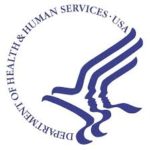The following is the latest health policy news from the federal government for January 26 – February 1. Some of the language used below is taken directly from government documents.
 Centers for Medicare & Medicaid Services
Centers for Medicare & Medicaid Services
- CMS has released its calendar year (CY) 2025 Advance Notice for the Medicare Advantage and Medicare Part D Prescription Drug Programs that would update payment and other policies for these programs. Under the notice, federal Medicare Advantage spending would increase an expected 3.7 percent, or more than $16 billion, but the agency also proposes reducing by 0.16 percent the program’s base rate. CMS also detailed improvements to the Medicare Part D drug benefit program for CY 2025 that should result in lower drug costs for millions of Medicare participants. Under the Inflation Reduction Act, annual out-of-pocket costs in 2025 will be capped at $2,000 for people with Medicare Part D. Learn more from the following resources:
Public comments are due by March 1 and the CY 2025 rate announcement and CY 2025 Part D redesign program instructions will be published no later than April 1.
- CMS announced that sickle cell disease will be the first focus of its Cell and Gene Therapy Access Model, which was announced last year. The model is designed to improve health outcomes, increase access to cell and gene therapies, and lower health care costs for some of the nation’s most vulnerable populations. Over the next year CMS will partner with participating states and manufacturers to build a framework that expands access to gene therapies for the treatment of sickle cell disease. Under the model, CMS will negotiate an outcomes-based agreement with participating manufacturers that will tie pricing for sickle cell disease treatments to whether the therapy improves health outcomes for people with Medicaid. Participating states will then decide whether to enter into an agreement with manufacturers based on the negotiated terms and offer the agreed-upon standard access policy in exchange for rebates as negotiated by CMS. The Cell and Gene Therapy Access Model will begin in January 2025 and states may choose to begin participating at a time of their choosing between January 2025 and January 2026. Learn more from this CMS news release; this fact sheet; and the Cell and Gene Therapy Access Model web page.
- CMS has updated its information on Medicare provider enrollment. Learn about changes in the process here.
- CMS has issued a request for information seeking input from the public about various aspects of Medicare Advantage data, with an emphasis on how best to enhance Medicare Advantage data capabilities and increase public transparency. Specifically, CMS requests comments on all aspects of data related to the Medicare Advantage program – both data not currently collected as well as data currently collected. It is especially interested in data-related recommendations involving beneficiary access to care, including provider directories and networks; prior authorization and utilization management, including denials of care and beneficiary experience with appeals processes and use and reliance on algorithms; cost and utilization of different supplemental benefits; Medicare Advantage marketing and consumer decision-making; care quality and outcomes, including value-based care arrangements and health equity; competition in the market, including the impact of mergers and acquisitions, high levels of enrollment concentration, and the effects of vertical integration; data on Medicare Advantage prescription drug plans; and special populations such as individuals dually eligible for Medicare and Medicaid, individuals with end-stage renal disease, and other enrollees with complex conditions; and more. Learn more from this regulatory announcement. Comments are due by May 29.
- CMS has sent initial offers to participating drug companies for the first 10 prescription drugs selected for negotiation in the first cycle of the Medicare Drug Price Negotiation Program, as authorized by the Inflation Reduction Act. Learn more from this HHS news release.
- CMS’s Center for Medicare and Medicaid Innovation has established a “Value-Based Care Spotlight” web page that seeks to enhance understanding of value-based care as a cornerstone of transforming health care. Find the new site here.
- CMS is accepting proposal submissions for its health equity conference, which will be held in Bethesda, Maryland on May 29 and 30. Go here for information and guidelines for submitting proposals. CMS held a webinar on January 18 to discuss proposal submission during which agency officials presented details about the conference and the proposal submission process. Learn more from a recording of that webinar, the webinar slide deck, a transcript of the event, and this FAQ.
 Department of Health and Human Services
Department of Health and Human Services
- HHS and its Substance Abuse and Mental Health Services Administration’s (SAMHSA) have published a final rule updating regulations governing opioid treatment programs through which people can obtain methadone treatment for opioid use disorder. The final rule makes permanent COVID-19 era flexibilities that expand eligibility for patients to receive take-home doses of methadone; permits prescribing via telehealth, including methadone, via audio-visual telehealth technology and buprenorphine via audio-only technology; expands provider eligibility to permit nurse practitioners and physician assistants to order medications for opioid treatment programs, where state law allows. Learn more from this HHS news release and a pre-publication version of the final rule; the regulation will formally be published on February 2 and following a 60-day period from the publication date the new rules will take full effect within six months.
- HHS’s Health Resources and Services Administration (HRSA) has launched a year-long “Enhancing Maternal Health Initiative.” The initiative seeks to strengthen, expand, and accelerate HRSA’s maternal health work to address maternal mortality and maternal health disparities in partnership with mothers, grantees, community organizations, and state and local health officials across the country. The program will seek to achieve measurable progress in maximizing the impact of HRSA grants and programs to address maternal mortality and improve maternal health; foster new partnerships and collaborations among HRSA grantees in high-need, high-opportunity jurisdictions to address maternal mortality and improve maternal health; and strengthen HRSA’s internal capacity to maximize the impact of HRSA’s maternal health grants, programs, and resources. Learn more from this HRSA news release. In support of this initiative, CMS has issued an FAQ to state health officials addressing common questions about Medicaid benefits and state plan amendment submissions involving efforts to improve maternal health and extend postpartum coverage in Medicaid and CHIP. Find the FAQ here.
- HHS has announced that certain grant funds may be used to purchase xylazine test strips. Learn more from this HHS news release.
- SAMHSA has updated its publication “Overdose Prevention and Response Toolkit.” Find the updated version here.
- HHS has announced a series of actions that seek to slow recent, significant increases in the number of syphilis cases across the country. Learn more about those efforts from this HHS news release.
- HHS’s Office of the Assistant Secretary for Planning and Evaluation (ASPE) has posted the new issue brief “Medicare Enrollees and the Part D Drug Benefit: Improving Financial Protection through the Low-Income Subsidy.” Find the report here.
HHS Newsletters
- CMS – MLN Connects – February 1
- AHRQ News Now – January 30
- HRSA eNews – February 1
 Food and Drug Administration
Food and Drug Administration
The FDA has revised its emergency use authorization (EUA) for Paxlovid, stating that Paxlovid manufactured and labeled in accordance with the EUA will remain authorized for use through the labeled or extended expiration date, as applicable, or through March 8, whichever is earlier. EUA-labeled Paxlovid will no longer be authorized for emergency use after March 8 regardless of the labeled or extended expiration date. The Paxlovid EUA will continue to authorize emergency use of Paxlovid manufactured and labeled in accordance with the new drug application (NDA) for the treatment of mild-to-moderate COVID-19 patients who are at high risk for progression to severe COVID-19, including hospitalization or death. This revision to the Paxlovid EUA is the next phase in the transition from the use of EUA-labeled Paxlovid to the use of NDA-labeled Paxlovid. Learn more from this FDA announcement.
Medicaid and CHIP Payment and Access Commission (MACPAC)
- MACPAC commissioners have voted to include in their March 2024 report to Congress seven recommendations to reform the appeal process for Medicaid beneficiaries who have been denied access to care by their Medicaid plan. Among other recommendations, MACPAC is calling for independent, external review of appeals; CMS guidance on denial notices and requirements for managed care organizations to help beneficiaries file appeals; state audits of managed care denials, and more. Find MACPAC’s planned recommendations here.
- MACPAC has published a compendium summarizing state Medicaid payment policies for home- and community-based services (HCBS) provided under the waiver authority of Section 1915(c) of the Social Security Act. The compendium also describes other authorities that states use to cover HCBS, such as state plan options and Section 1115 demonstration waivers. Go here for an overview of the compendium and links to the publication.
 Government Accountability Office (GAO)
Government Accountability Office (GAO)
The Federal Housing Administration’s (FHA)’s Hospital Mortgage Insurance Program insures loans for capital improvements at hospitals – primarily those that provide general acute-care services. Amid interest in extending the program to other types of hospitals, Congress asked the GAO to evaluate the potential impact of insuring loans to other types of hospitals. In its analysis, the GAO found that extending the program to ineligible hospitals could increase program participation and risks, but specific effects are difficult to estimate. Learn more from this overview of the GAO report “Hospital Financing: Volume Limits and Reporting Could Help Manage Risks of Expanding FHA’s Mortgage Insurance Program,” which includes links to a summary of the report and the complete report.
Stakeholder Events
CMS Office of Minority Health – Coverage to Care Initiative Webinar – February 6
CMS’s Office of Minority Health will host a webinar to help inform partners about the latest updates and offerings from its Coverage to Care initiative on Tuesday, February 6 at 1:00 (eastern). The webinar will offer information about the availability of Coverage to Care resources, including where to find them and how organizations can begin/continue to use them, updates to Coverage to Care resources, and perspectives from one of the program’s partnering organizations. Go here to register to participate.
CMS – Cell and Gene Therapy Access Model Webinar – February 6
CMS will host a webinar on Tuesday, February 6 at 2:00 (eastern) to provide an overview of its Cell and Gene Therapy Access Model. During the session, staff will discuss the goals of the model, how the model addresses health equity, and the model contracting structure. The forum also will provide guidance on the application process, timeline, and resources available and offer a Q&A session. Go here to register to participate.
HHS – Office of Climate Change and Health Equity – Webinars on Taking Advantage of Provisions in the Inflation Reduction Act – February 8 and 15 (and others)
HHS’s Office of Climate Change and Health Equity is holding a series of webinars to help health care providers, and especially safety-net organization, take advantage of the tax credits, grants and other supports made available by the Inflation Reduction Act, which creates opportunities for health sector organizations to invest in clean energy, building efficiency, infrastructure resilience, and more. The next webinar will be held on Thursday, February 8, with additional events scheduled on February 22, March 7 and 21, and April 4 and 18. Separate break-out sessions will be held for essential hospitals, community health centers, and rural providers. Go here to learn more about the webinar series, future events, and the break-out sessions; go here for a recording of a November briefing on Inflation Reduction Act resources available to health care providers; and go here to register to participate.
HHS – Advisory Committee on Minority Health – February 13-14
HHS’s Advisory Committee on Minority Health, which advises the Deputy Assistant Secretary for Minority Health on ways to improve the health of racial and ethnic minority populations, will meet on February 13 – 14 at 8:30 a.m. (eastern) in Rockville, Maryland to discuss implementation of the anticipated updates of the Office of Management and Budget federal race and ethnicity data collection standards. Discussion will focus on opportunities for supporting community awareness of and engagement in future efforts to implement the revised race and ethnicity data collection standards.
The meeting is open to the public; in-person and webcast options for participation are available. Pre-registration is required for the public to attend the meeting, provide comments, and/or distribute printed materials to committee members. Learn more about the meeting and how to participate from this notice.
CMS – Medicare Cost Report E-Filing System Webinar – February 14
CMS will hold a webinar on the Medicare cost report e-filing system on Wednesday, February 14 at 1:00 (eastern). The webinar will offer information about new and upcoming functionality for Medicare Part A cost reports in the Medicare cost report e-filing system; the target audience is Medicare Part A providers and entities that file cost reports for providers. Learn more from this notice and go here to register to participate.
CMS – Value-Based Insurance Design Model Request for Applications Webinar – February 15
CMS’s Value-Based Insurance Design (VBID) Model team will host a request for applications webinar on Thursday, February 15 at 3:00 (eastern). Presenters will provide an overview of the recently released 2025 requests for applications for the VBID Model and the hospice benefit component, payment design related to the hospice benefit component of the VBID Model, and other updates for the CY 2025 application process. This session will also offer participants an opportunity to ask follow-up questions. Registration is required. Go here for further information and a link through which to regulate.
HHS – Agency for Healthcare Research and Quality – Integrating Patient-Reported Outcomes into Practice – February 27
The Agency for Healthcare Research and Quality (AHRQ) will hold a webinar on integrating patient-reported outcomes into practice on Tuesday, February 27 at 3:00 (eastern). During the webinar, AHRQ will host presentations of research findings on how best to use patient-reported outcomes for patients with varying health conditions and how to scale and spread patient-reported outcomes use within health systems. Go here to learn more and register to participate.
MedPAC – Commissioners Meeting – March 7-8
MedPAC’s commissioners will hold their next public meeting on Thursday, March 7 and Friday, March 8. An agenda and directions on how to participate in the meeting is not yet available but when that information is announced it will be posted here.
MACPAC – Commissioners Meeting – March 7-9
MACPAC’s commissioners will hold their next public meeting on Thursday, March 7 and Friday, March 8. An agenda and directions on how to participate in the meeting is not yet available but when that information is announced it will be posted here.
CMS – Health Equity Conference – May 29-30
CMS will hold its second annual CMS Health Equity Conference on Wednesday, May 29 and Thursday, May 30. The free, hybrid conference will be held in person in Bethesda, Maryland and available online for virtual participation and involve health equity leaders from federal and local agencies, health provider organizations, academia, community-based organizations, and others. Conference participants will hear from CMS leadership on recent developments and updates to CMS programs; explore the latest health equity research; discuss promising practices and creative solutions; and collaborate on community engagement strategies. CMS is now accepting proposals for breakout session speakers and poster presenters. Learn more from the conference web page.

 Centers for Medicare & Medicaid Services
Centers for Medicare & Medicaid Services